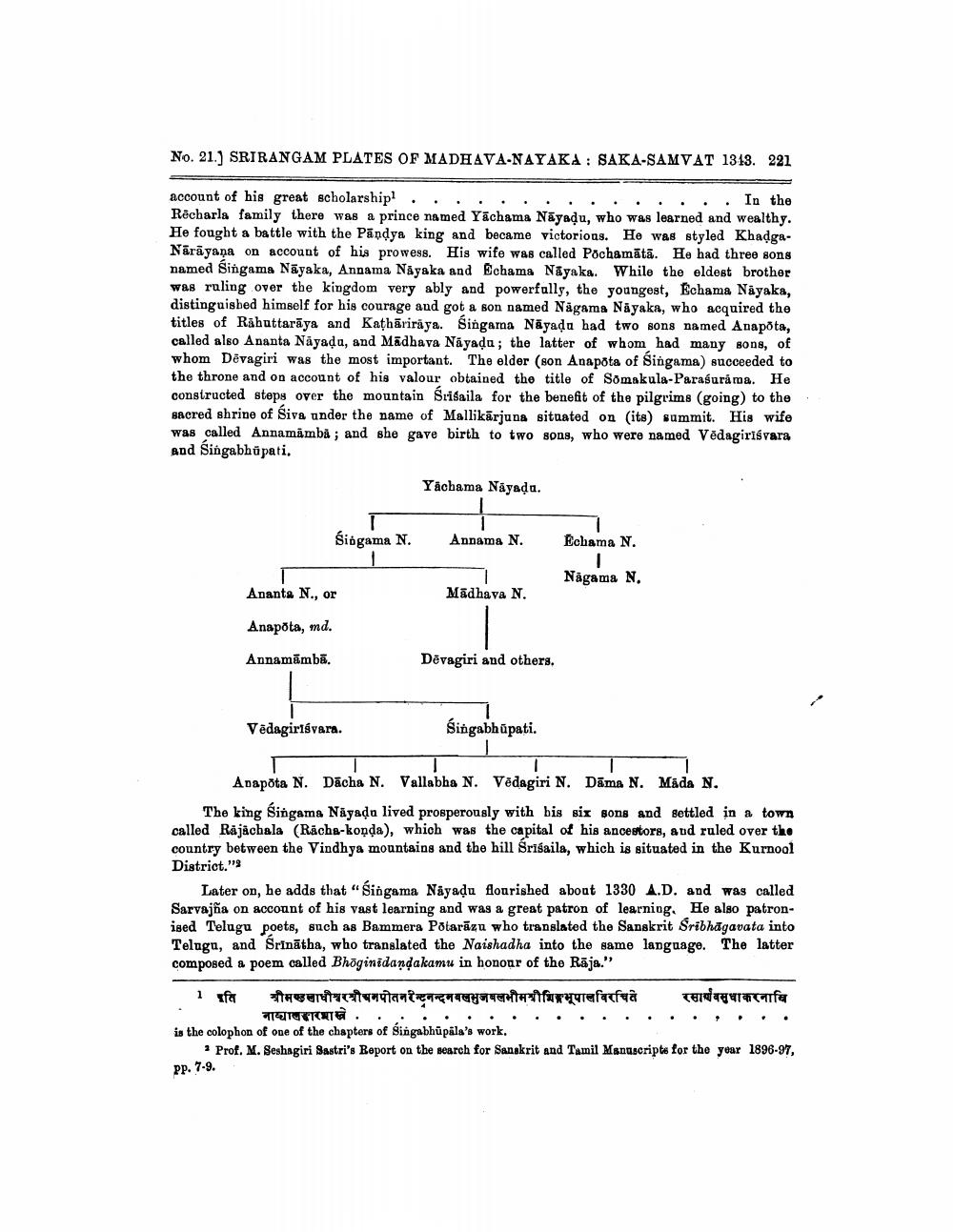________________
No. 21.) SRIRANGAM PLATES OF MADHAVA-NAYAKA: SAKA-SAMVAT 1313. 221
account of his great scholarship , . . . . . . . . . . . . . . In the Récharla family there was a prince named Yāchama Nāyadu, who was learned and wealthy. He fought a battle with the Pandya king and became victorious. He was styled KhadgaNārāyana on account of his prowess. His wife was called Pochamātā. He had three sons named Singama Nāyaka, Annama Nayaka and chama Nayaka. While the eldest brother was ruling over the kingdom very ably and powerfully, the youngest, Echama Nayaka, distinguished himself for his courage and got a son named Nagama Nayaka, who acquired the titles of Rahuttarāya and Kathārirāya. Singarna Nāyada had two sons named Anapota, called also Ananta Näyada, and Mādhava Nayadu; the latter of whom had many sons, of whom Dévagiri was the most important. The elder (son Anapota of Singama) succeeded to the throne and on account of his valour obtained the title of Somakula-Parasurama. He constructed steps over the mountain Srisaila for the benefit of the pilgrims (going) to the sacred shrine of Siva under the name of Mallikārjuna situated on its) summit. His wife was called Annamämbă; and she gave birth to two sons, who were named Védagiriśvara and Singabhū pati.
Yachama Näyada.
Siógama N.
Annama N.
Echama N.
Nāgama N.
Ananta N., or
Mādhava N.
Anapota, md.
Annamāmbā.
Dēvagiri and others.
Vēdagiriśvara.
Singabhūpati.
Adapota N. Dācha N. Vallabha N. Vēdagiri N. Dāma N. Mada N. The king Singama Näyada lived prosperously with bis six sons and settled in a town called Räjächala (Racha-koņda), which was the capital of his ancestors, and ruled over the country between the Vindhya mountains and the hill Srisaila, which is situated in the Kurnool District."
Later on, he adds that "Singama Nayadu flourished about 1330 A.D. and was called Sarvajña on account of his vast learning and was a great patron of learning. He also patronised Telugu poets, such as Bammera Potarāzu who translated the Sanskrit Sribhagavata into Telugu, and Srinātha, who translated the Naishadha into the same language. The latter composed a poem called Bhõginidandakamu in honour of the Rāja."
1 इति श्रीमण्डलाधीश्वरीषमपीतनरेन्दनन्दमबखभुजबलभीमचीमिङ्गभूपालविरचिते रसार्थ वसुधाकरनावि
TETHÊ. . . . . . . . . . . . . . . . . . . . is the colophon of one of the chapters of singabhūpala's work.
- Prof. M. Seshagiri Sastri's Report on the search for Sanskrit and Tamil Manuscripts for the year 1896-97,
Pp. 7-9.




